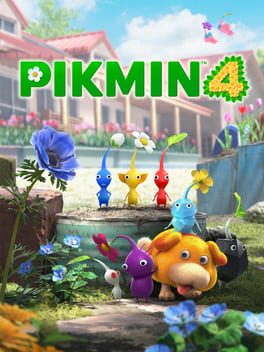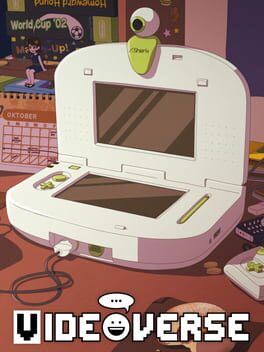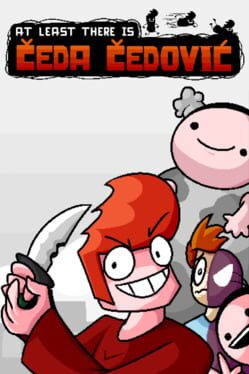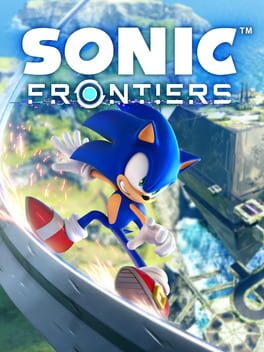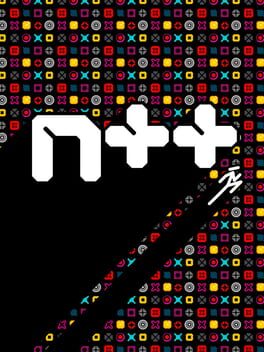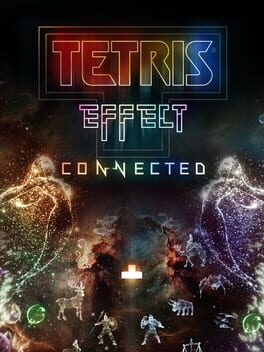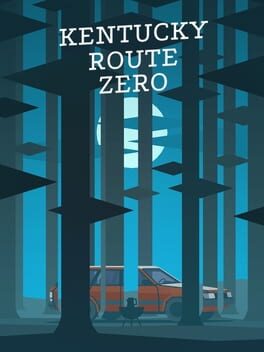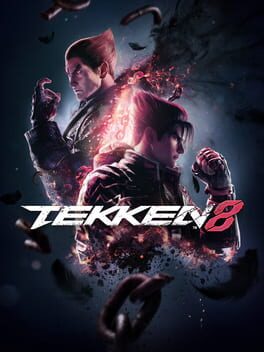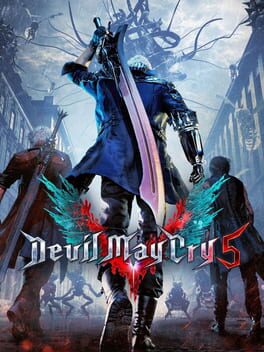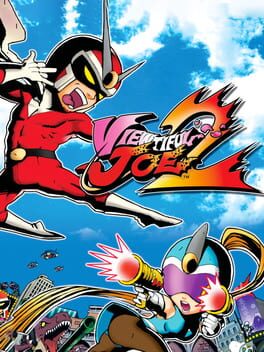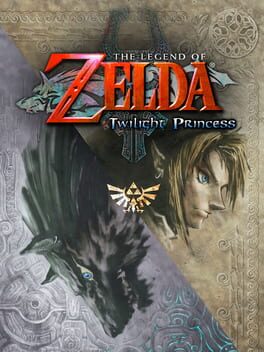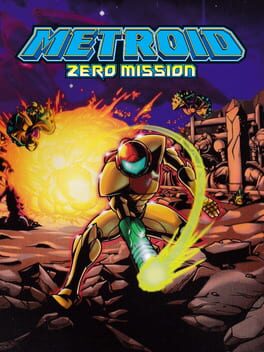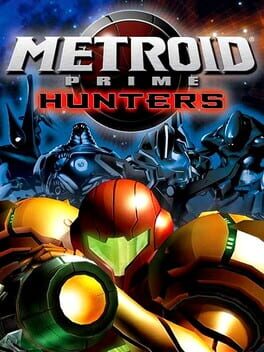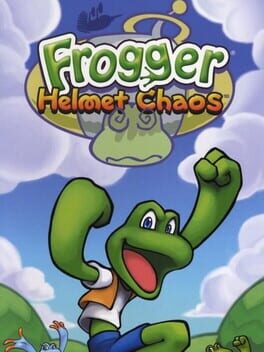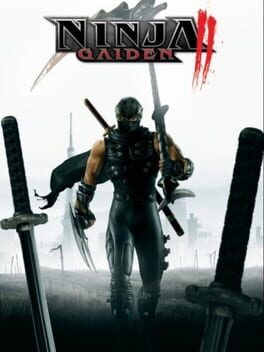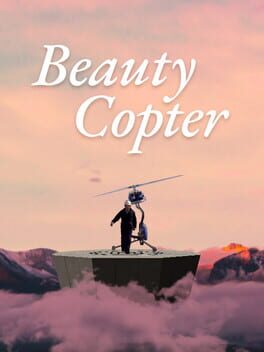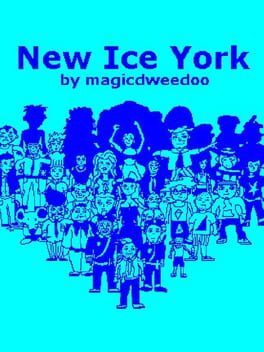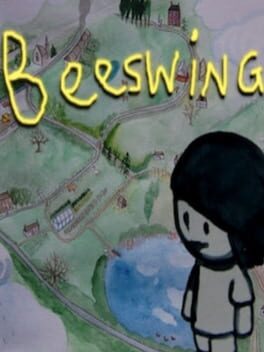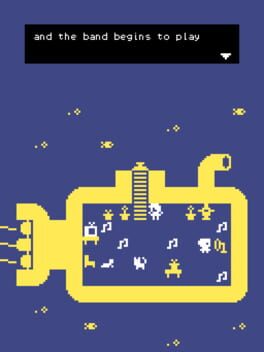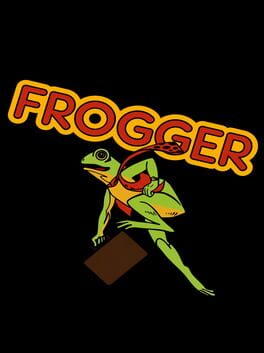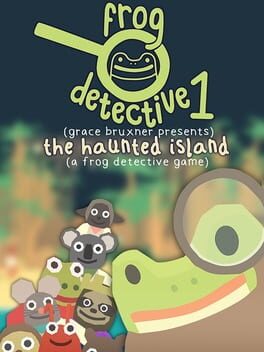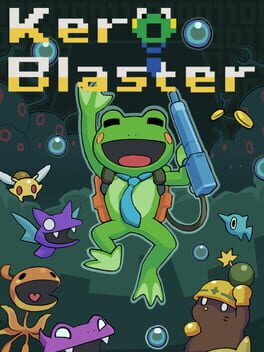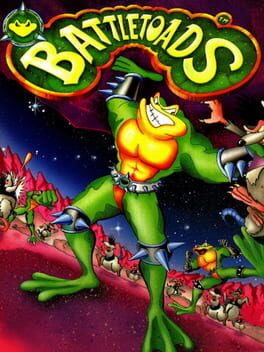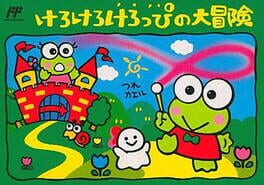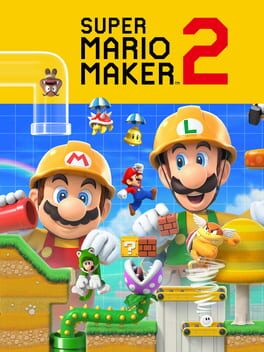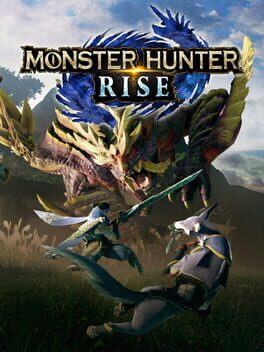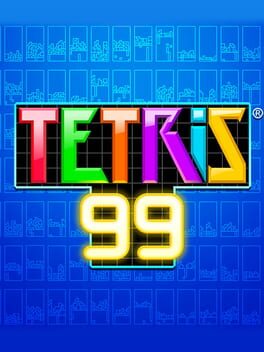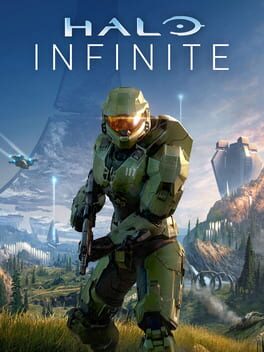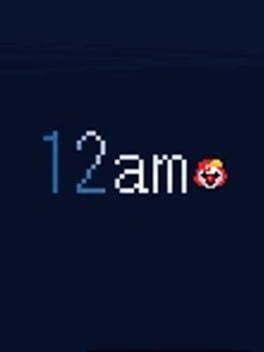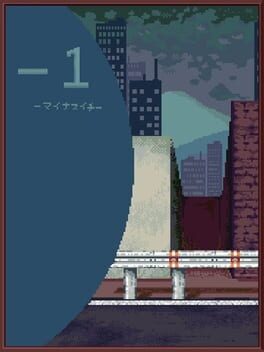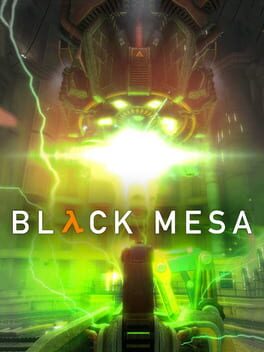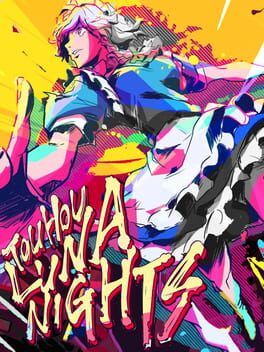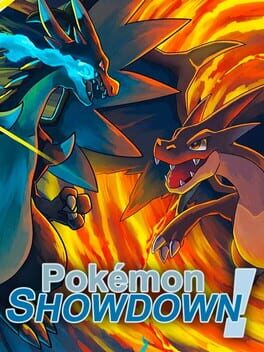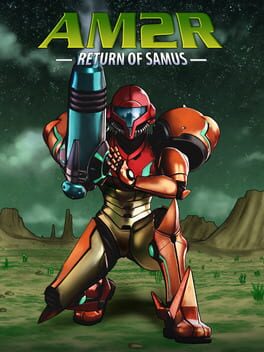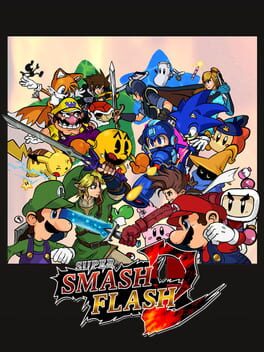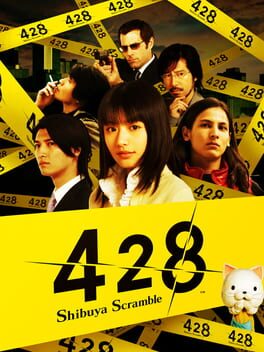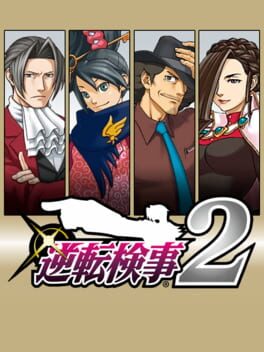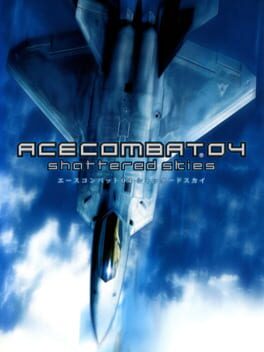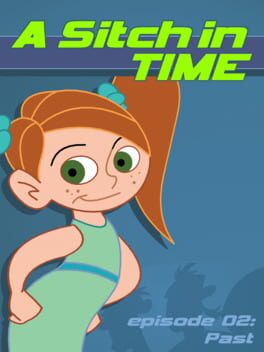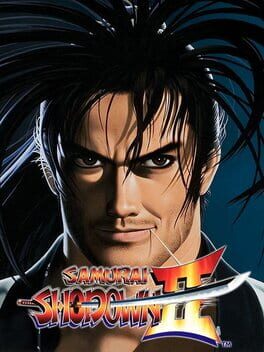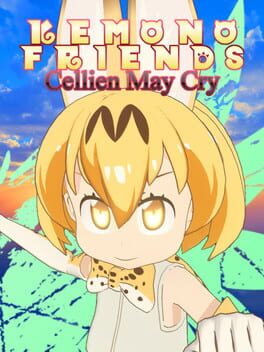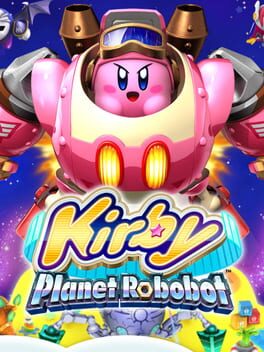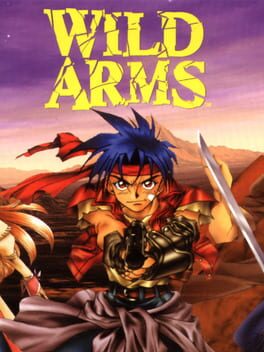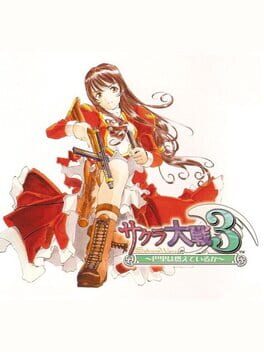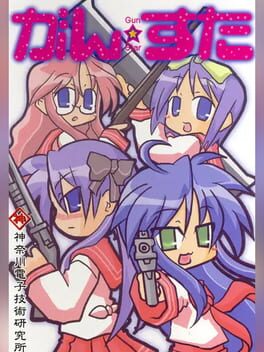31 reviews liked by Sof
Pikmin 4
2023
This is maybe more of a review of the concept of 'dandori' than it is strictly a review of the game, Pikmin 4, a mere vessel for that ethos.
Sometimes there simply isn't a word for the type of work a work of art is. Attempting to take genre classification seriously leads to either the insufficiently academic and endlessly debatable, or mashing together words into meaningless ad-libs. Is Pikmin a puzzle-game? Is it a puzzle real-time strategy with survival game elements? Probably, but neither of these things say much about what the game is. There's no game it's particularly *-like either. We laughed when Hideo Kojima coined the 'strand-type' game, but sometimes, that's all you can do.
The word that the developers of Pikmin 4 decided to use to describe their game is 'dandori', and it's a word that the localizers of Pikmin 4 struggle to translate. Broadly speaking, it's left as is. They describe it in-game as "[organizing] tasks strategically and working effectively to execute plans", which is not inaccurate, but also isn't exactly helpful either. However, the brilliance of Pikmin, and of this game in particular, is that to understand dandori, you don't need words. Pikmin is a game built to teach it to you, the way that Mario teaches you timing and spatial analysis, the way XCOM teaches you to manage risk.
If I were to take a stab at explaining it, dandori is about time management in a workplace. In that workplace, you have tasks, and workers. Those workers take time to complete those tasks, which are varying in nature, and spread out across the workplace. How can you complete as much of what you need to get done as possible before the day is over? Well, you might consider;
- Avoiding idleness. Time spent not working is time wasted (fortunately, in Pikmin your workers do not have needs and never tire, so any ethical concerns with this are neatly sidestepped)
- Knowing your workers, and assigning them the tasks they are best suited for. (Pikmin are pleasingly color-coded, and as of Pikmin 4, have diverse and overlapping strengths. They are also, while error-prone, perfectly obedient)
- Prioritizing tasks that make future tasks easier (You start each day surrounded by a tempting bouquet of flowers, a quick method of bolstering your Pikmin count)
As you can see, the answer is not a number, or a silver bullet. It is a series of principles, applied to each new situation as necessary, taught directly through simply playing the game. The answer is dandori.
And dandori is good. Let's assume, for a moment, that there is an inherent joy in the efficient completion of tasks - or at least, that you're the kind of person who thinks so. Pikmin 4 is a wonderful game for getting a lot of stuff done. Your ultimate goals are very straight forward, but the means by which you achieve them involve many different obstacles, cleanly broken down into assignable, varying tasks. They sit there, waiting for you to come and untangle them, wrapped in an overall game structure that wields a gentle, but unwavering time pressure to urge you onwards without ever forcing you to take drastic, unplanned action. That inherent joy I mentioned is found here in spades, and presented to the player with the immediacy typical of Nintendo's flagship titles - aside from a few minor quibbles with controls and pacing.
(There is an awful lot of talking throughout the game, which is time spent not doing dandori. I also found that it was harder than I would've wanted to send more Pikmin to help with a task than were required, which was noticeable, because that is a something you consider doing any time you do literally anything)
These small things cannot keep Pikmin 4 from being an outstanding, enjoyable adventure, that's simple and intuitive to get started with. The Nintendo design philosophy of simplifying player actions and pushing the complexity out into the world works wonders here. Assigning tasks to workers in most any game is at least a couple of interactions. Here, you just mash one button to throw your lil guys at the thing you want until it starts happening. Feedback on the progress of tasks is immediate and clear. Outside of some of the more challenging instances of combat, thinking about something is as good as doing it.
There's next to no barriers between the player and their engagement with the organisational thinking that dandori benefits.
In truth, every Pikmin game has been about dandori, even if the term was freshly coined for the fourth. Every Pikmin game changes the things around that core concept - new tasks, new workers, varying degrees of co-operative gameplay - but dandori has always been there. In all three prior games, you are explicitly graded on how quickly you completed your tasks, which is a direct consequence of how well you managed your workforce, which can only be improved through the application of the principles of dandori. Though the consequences of working too inefficiently have perhaps become gentler in recent games, it is still the thing that drives the player forward.
This is the sort of thing Nintendo has always done, for better or worse. Take some gameplay that's fun and approachable, put class-leading kid-friendly character design on it, and spend the next two or three decades examining it in new contexts, finding new ways to get at that core. Here, in Pikmin, that core is not movement, or combat, or even exploration.It's not any of the actions you perform in-game, though those haven't needed to change much over two decades. The core is the philosophy of dandori, how you think about the actions you're performing in that broader, more malleable context. And unlike previous Pikmin games, Pikmin 4 finds a way to demonstrate how it comes from outside the world of games, exists wherever work and organisation do.
See, Pikmin 4 is actually about half a dozen Pikmin games. Or, it's more like one really big Pikmin game, with a bunch of smaller auxiliary games in its orbit. Each game is presented to you piecemeal as you progress through the story, one level at a time, spread out through a larger story. Most of them are even optional, if you don't like what they're cooking. But all of them, again, rely on dandori. Whether it's a compressed, five-minute version of the base experience, or a survival horror wave defense, or messy competitive battles, you use the same core principles in each and every additional game. Where a game series might normally take entry after entry to explore its core conceit so thoroughly and from so many angles, Pikmin 4 leaps past its predecessors to do it in one. Not only does it teach you dandori - it universalizes it.
That's the wonder of Pikmin 4. It's not that there's so much of it, or that it's so lovingly rendered. It's that it really, truly wants to teach you how fun it can be to make and execute a plan. It wants you to learn dandori, and it will gently hold your hand and lead you directly to it, if you let it. It'll show you dandori from each of its distinct perspectives, whichever ones you find fun enough to dig into. If you're really taking to it, it won't hesitate to let you take the challenge as far as you want. 'How could you apply these concepts in your daily life?' Pikmin 4 asks, in one of many load screen tooltips. Once you've played the game, it might be hard not to look for answers to that question
Sometimes there simply isn't a word for the type of work a work of art is. Attempting to take genre classification seriously leads to either the insufficiently academic and endlessly debatable, or mashing together words into meaningless ad-libs. Is Pikmin a puzzle-game? Is it a puzzle real-time strategy with survival game elements? Probably, but neither of these things say much about what the game is. There's no game it's particularly *-like either. We laughed when Hideo Kojima coined the 'strand-type' game, but sometimes, that's all you can do.
The word that the developers of Pikmin 4 decided to use to describe their game is 'dandori', and it's a word that the localizers of Pikmin 4 struggle to translate. Broadly speaking, it's left as is. They describe it in-game as "[organizing] tasks strategically and working effectively to execute plans", which is not inaccurate, but also isn't exactly helpful either. However, the brilliance of Pikmin, and of this game in particular, is that to understand dandori, you don't need words. Pikmin is a game built to teach it to you, the way that Mario teaches you timing and spatial analysis, the way XCOM teaches you to manage risk.
If I were to take a stab at explaining it, dandori is about time management in a workplace. In that workplace, you have tasks, and workers. Those workers take time to complete those tasks, which are varying in nature, and spread out across the workplace. How can you complete as much of what you need to get done as possible before the day is over? Well, you might consider;
- Avoiding idleness. Time spent not working is time wasted (fortunately, in Pikmin your workers do not have needs and never tire, so any ethical concerns with this are neatly sidestepped)
- Knowing your workers, and assigning them the tasks they are best suited for. (Pikmin are pleasingly color-coded, and as of Pikmin 4, have diverse and overlapping strengths. They are also, while error-prone, perfectly obedient)
- Prioritizing tasks that make future tasks easier (You start each day surrounded by a tempting bouquet of flowers, a quick method of bolstering your Pikmin count)
As you can see, the answer is not a number, or a silver bullet. It is a series of principles, applied to each new situation as necessary, taught directly through simply playing the game. The answer is dandori.
And dandori is good. Let's assume, for a moment, that there is an inherent joy in the efficient completion of tasks - or at least, that you're the kind of person who thinks so. Pikmin 4 is a wonderful game for getting a lot of stuff done. Your ultimate goals are very straight forward, but the means by which you achieve them involve many different obstacles, cleanly broken down into assignable, varying tasks. They sit there, waiting for you to come and untangle them, wrapped in an overall game structure that wields a gentle, but unwavering time pressure to urge you onwards without ever forcing you to take drastic, unplanned action. That inherent joy I mentioned is found here in spades, and presented to the player with the immediacy typical of Nintendo's flagship titles - aside from a few minor quibbles with controls and pacing.
(There is an awful lot of talking throughout the game, which is time spent not doing dandori. I also found that it was harder than I would've wanted to send more Pikmin to help with a task than were required, which was noticeable, because that is a something you consider doing any time you do literally anything)
These small things cannot keep Pikmin 4 from being an outstanding, enjoyable adventure, that's simple and intuitive to get started with. The Nintendo design philosophy of simplifying player actions and pushing the complexity out into the world works wonders here. Assigning tasks to workers in most any game is at least a couple of interactions. Here, you just mash one button to throw your lil guys at the thing you want until it starts happening. Feedback on the progress of tasks is immediate and clear. Outside of some of the more challenging instances of combat, thinking about something is as good as doing it.
There's next to no barriers between the player and their engagement with the organisational thinking that dandori benefits.
In truth, every Pikmin game has been about dandori, even if the term was freshly coined for the fourth. Every Pikmin game changes the things around that core concept - new tasks, new workers, varying degrees of co-operative gameplay - but dandori has always been there. In all three prior games, you are explicitly graded on how quickly you completed your tasks, which is a direct consequence of how well you managed your workforce, which can only be improved through the application of the principles of dandori. Though the consequences of working too inefficiently have perhaps become gentler in recent games, it is still the thing that drives the player forward.
This is the sort of thing Nintendo has always done, for better or worse. Take some gameplay that's fun and approachable, put class-leading kid-friendly character design on it, and spend the next two or three decades examining it in new contexts, finding new ways to get at that core. Here, in Pikmin, that core is not movement, or combat, or even exploration.It's not any of the actions you perform in-game, though those haven't needed to change much over two decades. The core is the philosophy of dandori, how you think about the actions you're performing in that broader, more malleable context. And unlike previous Pikmin games, Pikmin 4 finds a way to demonstrate how it comes from outside the world of games, exists wherever work and organisation do.
See, Pikmin 4 is actually about half a dozen Pikmin games. Or, it's more like one really big Pikmin game, with a bunch of smaller auxiliary games in its orbit. Each game is presented to you piecemeal as you progress through the story, one level at a time, spread out through a larger story. Most of them are even optional, if you don't like what they're cooking. But all of them, again, rely on dandori. Whether it's a compressed, five-minute version of the base experience, or a survival horror wave defense, or messy competitive battles, you use the same core principles in each and every additional game. Where a game series might normally take entry after entry to explore its core conceit so thoroughly and from so many angles, Pikmin 4 leaps past its predecessors to do it in one. Not only does it teach you dandori - it universalizes it.
That's the wonder of Pikmin 4. It's not that there's so much of it, or that it's so lovingly rendered. It's that it really, truly wants to teach you how fun it can be to make and execute a plan. It wants you to learn dandori, and it will gently hold your hand and lead you directly to it, if you let it. It'll show you dandori from each of its distinct perspectives, whichever ones you find fun enough to dig into. If you're really taking to it, it won't hesitate to let you take the challenge as far as you want. 'How could you apply these concepts in your daily life?' Pikmin 4 asks, in one of many load screen tooltips. Once you've played the game, it might be hard not to look for answers to that question
Videoverse
2023
At first glance, I thought this was more or less budget Hypnospace Outlaw, with the old internet/Geocities inspiration replaced by some amalgamation of Miiverse, Swapnote, and MSN Messenger. That wouldn't be giving enough credit to Videoverse however; instead of focusing on the mystique of the deep web, Videoverse tackles the intricacies of navigating a dying social network tied to increasingly redundant technology and highlights the relationships within. The game forgoes Hypnospace Outlaw's discovery puzzles, and cuts right to the core of interacting with the community itself, instinctively conveying the fragility of maintaining such relationships. You're constantly scouring the same forums over and over for new comments and any changes, trying to decipher exactly what this particular user meant with just one sentence while playing the simulations in your head about how particular responses (or not responding at all) could make their day a little bit better or potentially upset another member due to unintended consequences.
It's a surprisingly gripping experience despite its limitations: sometimes there are certain responses that the game forbids you from picking because you're not "lawful/cocky" enough even if the responses feel more blunt than out of character, and browsing the same posts repeatedly can feel a bit plodding when the trigger to proceed requires you to leave more comments but the system itself can only mark whether a post is left read/unread. Despite that, the payoff makes the occasional tedium worthwhile; marking down "top posts" in a notebook lets you reiterate those statements to others later on, and the game really comes together when you're using small tidbits of wisdom to brighten an online friend's day. If you're looking for an cathartic blast to the past that depicts the ephemerality of online spaces while thoughtfully forcing players to confront the ambiguity of the interactions stemming within, then Videoverse may be just what you're looking for.
It's a surprisingly gripping experience despite its limitations: sometimes there are certain responses that the game forbids you from picking because you're not "lawful/cocky" enough even if the responses feel more blunt than out of character, and browsing the same posts repeatedly can feel a bit plodding when the trigger to proceed requires you to leave more comments but the system itself can only mark whether a post is left read/unread. Despite that, the payoff makes the occasional tedium worthwhile; marking down "top posts" in a notebook lets you reiterate those statements to others later on, and the game really comes together when you're using small tidbits of wisdom to brighten an online friend's day. If you're looking for an cathartic blast to the past that depicts the ephemerality of online spaces while thoughtfully forcing players to confront the ambiguity of the interactions stemming within, then Videoverse may be just what you're looking for.
There is nothing like this game. Ok technically it’s a pretty basic acrobatic platforming game that is based solely on super mario style gameplay quite unabashedly, but what this game is makes me so happy.
It’s one guy’s ocs based on his old flash animations running through worlds based entirely off of games and media that fall into such heavy obscurity that finding something you recognize is kind of amazing. This is a game where the penultimate world is called Video World and is based on youtube videos one of the devs likes.
The game is free and they don’t care about copyright, they can just have whatever they want in there, it’s a hand drawn pixel art game but it is authentically kitbashed feeling, and that extends to the soundtrack, which is one of the best sets of plunderphonic jams i have ever heard.
The appeal of this game is hard to put into words to be honest, have you ever wanted to have a boss fight against a massive jpeg of that one bootleg MJ Thriller guy? which is in turn a reference to a weird flash game? or have you ever wanted to have a level based entirely off of a creepy pasta that nobody has ever heard of? what about a Stick Figures on Crack level based on specifically a rip off by someone else, or what about a bonus level based on Moppa Wars! (look it up you will find nothing)
Worth mentioning is that this game is dickhead level difficult, as someone who loves tough as nails videogames (not as a hardcore get gud gamer but as a total masochist), this walks the line of what i consider fun and frustrating. But the esthetic, music, quasi nostalgic vibes, and just generally how this game handles itself make me very happy and willing to jump through hoops just to see what else gets this game has hidden in it, i have been on board this game was about Obama dressed as Mario, and i can’t tell you how happy i am this game turned out just as insane as i was wishing.
You can tell this is a Slavic game because the devs made sure every speaking role character just says “Breh” as their text box voice bark.
It’s one guy’s ocs based on his old flash animations running through worlds based entirely off of games and media that fall into such heavy obscurity that finding something you recognize is kind of amazing. This is a game where the penultimate world is called Video World and is based on youtube videos one of the devs likes.
The game is free and they don’t care about copyright, they can just have whatever they want in there, it’s a hand drawn pixel art game but it is authentically kitbashed feeling, and that extends to the soundtrack, which is one of the best sets of plunderphonic jams i have ever heard.
The appeal of this game is hard to put into words to be honest, have you ever wanted to have a boss fight against a massive jpeg of that one bootleg MJ Thriller guy? which is in turn a reference to a weird flash game? or have you ever wanted to have a level based entirely off of a creepy pasta that nobody has ever heard of? what about a Stick Figures on Crack level based on specifically a rip off by someone else, or what about a bonus level based on Moppa Wars! (look it up you will find nothing)
Worth mentioning is that this game is dickhead level difficult, as someone who loves tough as nails videogames (not as a hardcore get gud gamer but as a total masochist), this walks the line of what i consider fun and frustrating. But the esthetic, music, quasi nostalgic vibes, and just generally how this game handles itself make me very happy and willing to jump through hoops just to see what else gets this game has hidden in it, i have been on board this game was about Obama dressed as Mario, and i can’t tell you how happy i am this game turned out just as insane as i was wishing.
You can tell this is a Slavic game because the devs made sure every speaking role character just says “Breh” as their text box voice bark.
Sonic Frontiers
2022
What a lot of people either fail to realise or refuse to believe is that the best Sonic games are the flawed ones. The games that try to innovate with bold ideas unbecoming of a Sonic game, or any game. We've had 'perfect' Sonic games before like Sonic Mania or Sonic Generations and those games are great but they can't hold a candle to the way-too-serious tone of Sonic Adventure 2, the quaint but pointless Adventure Fields of Sonic Adventure, the audacity to make half the game a slow beat-em-up in Sonic Unleashed. People love Sonic for its ambition, not its accomplishments. People love games for their imperfections the same way they love people despite their flaws. Sonic Team has, for decades now, dared to do things that are new, bold, and weird. Sonic Frontiers is a continuation of that vision, and to reduce it to petty statements of "open world 🤓 sega hire this man 🤓 serious plot in cartoon rat game 🤓 the controls 🤓 but he's slow" is a pitch-perfect demonstration of how Sonic is doomed to fail. Look at your favourite games and try earnestly telling yourself they're flawless.
Credit to smaench for planting this seed in my brain, actual review when I'm done playing it and can let my thoughts digest rather than spewing unfiltered drivel onto your webzone.
Credit to smaench for planting this seed in my brain, actual review when I'm done playing it and can let my thoughts digest rather than spewing unfiltered drivel onto your webzone.
Too often I think we are chained by the systematization of concepts and sensibilities to truly grasp the way in which the vibrations and rendering of place and action can exist through digital spaces. Within a ten-minute text-adventure game on itch.io (constituted almost entirely of raw-text sentences on a blank wallpaper) I've intuited more textures and tastes of imagery and landscapes than any video-essay or structured analysis I've ever seen. Maybe it's a sort of cathartic and utopian awakening to touch a work that manages to portray this sort of ambiguity regarding the lens through we which we "feel" aesthetics in games (which is almost uncharted territory in terms of definition since we can't even manage to determine what 'game design' is) and not succumb to this cynic preposition of everything needing function and purpose through some sort of utilitarian perspective regarding "intention", that is, the sort of evaluation that seems to look at art from the outside instead of the inside, and I think that's the key point overall I'm trying to make. In order for something to "succeed" or to be "convincing" to one's understanding of art there's a certain undertone that implies a sort of staticity in our "digestion" of those experiences, a voyeuristic excitement at 'consuming' works that are, to our eyes, something that exists in our plane first and in their plane last.
"feelsgood" and "gamefeel" are wide-ranging adjectives I've seen be used in game criticism for a while in both bad and good connotation but we sometimes forget how those concepts of "crunchiness" or "pleasure" traverse for one person and the other. The popping little explosions of Kingdom Hearts' keyblade plummeting the enemy away like a ragdoll and Doom's shotgun ravaging its way through the fleshy insides of a demon is a very superficial comparison I'm making on the fly to demonstrate the differences in "feel" interactive fiction can create, but in that sense why do we tend to use this word as if it somehow systematized and encompassed all sorts of feel into a concept that can be 'good' or 'bad' depending on context? Sometimes it feels good to hit things. Sometimes it feels awful but it is also compelling. Sometimes a world can exasperate its breath through traversal and physical connection like Breath of the Wild does with its ephemeral assimilation of challenges and progression, and sometimes it can inspire action and improvisation on virtual architecture like Sonic Adventure, begging us to ramp and spindash through hubs and places that mechanically only exist to grant a sense of friction to movement, but inspire the imagination and playfulness of running through their skies, water and colors --- Sonic Adventure's "jank" gives these spaces life in the unpredictability of direction and speed. If there's one thing I learned with Video Game Feminization Hypnosis is that most things I love about games I love will probably remain unspeakable, verbalized mysteries until the day I forget what words mean and only feel the sunshine of Outrun 2's skybox peeling the anxiety of my mind through the sound of Magical Sound Shower. Until the day I can only remember the drifting piano of Breath of the Wild's biotic world orchestrating its digital stillness, like a God breathing on my shoulder while I move and slide aimlessly like a lost wanderer. Until I can only recall the melody of Demon's Souls' Nexus and the sound my footsteps raise when walking through the water mirror on its center. Until I can only reminisce about Proteus's singing flowers and its island that dances through optics and observation. Maybe that's why we write reviews and want our loves validated or to be seen as something 'higher', 'mightier', something complicated and mystical as the maths that reveal humanity the mysteries of the universe since centuries ago. We want answers we'll never be able to grasp as long as we try to analyze, and to analyze we need to lie in the exterior. We need to watch, study and patronize; we need to put these architectures and spaces into boxes and views of 'critique' and 'deliberacy'. We need to leave its heart and embrace the surfaces of technicality.
Maybe we should try to feel more, see more, hear more, sense more. To be inside those worlds and not inspect them, but love them. Or hate them. Or feel nothing. It'll always depend. But I don't want to pretend that I know anything anymore, I don't want to play jigsaw and piece it all together.
I've always questioned my taste for existing in spaces. In my dreams I'm often attached to the unearthly and chaotic logic that conducts the sights and people that I see in my own mind. I want more than anything to exist in places that can make me feel something about who I am or the people that surround me, I want to belong and to discover. I know that I want to not know, I want mystique; the dialectics of discovery, wonder and impermanence. Maybe that's why my favorite Super Marios are 64 and Galaxy, because I'll never forget how mysterious and dreamy the castle felt on my first way through in 64, expanding unto itself as if it had a life of its own; and I'll never forget how silent and empty the starred void could be in Galaxy, even if I couldn't traverse it --- picturing it through a looking-glass was enough to capture its scale in relation to Mario, its gravity pulling me with ease and swinging me around spheres as I grasped the cosmos' force beyond what I could jump on despite the universe looking so calm. Maybe that's why Danganronpa's claustrophobic and unworldly, exaggerated style of pink blood and flipping cardboard cut-outs resonated with my urge to pull the paper off the stage, exploring and gathering evidence towards nonsensical, absurd truths. It's not that I want to exist in worlds that make me forget I am here, but worlds that remind me how much there truly is in the unseen, between the lines of the material. Those hypnotizing physicalities we conjure of body, mind and soul. If we broke away from all the systems, equations and measuring, who knows what frontiers we could uncover.
"feelsgood" and "gamefeel" are wide-ranging adjectives I've seen be used in game criticism for a while in both bad and good connotation but we sometimes forget how those concepts of "crunchiness" or "pleasure" traverse for one person and the other. The popping little explosions of Kingdom Hearts' keyblade plummeting the enemy away like a ragdoll and Doom's shotgun ravaging its way through the fleshy insides of a demon is a very superficial comparison I'm making on the fly to demonstrate the differences in "feel" interactive fiction can create, but in that sense why do we tend to use this word as if it somehow systematized and encompassed all sorts of feel into a concept that can be 'good' or 'bad' depending on context? Sometimes it feels good to hit things. Sometimes it feels awful but it is also compelling. Sometimes a world can exasperate its breath through traversal and physical connection like Breath of the Wild does with its ephemeral assimilation of challenges and progression, and sometimes it can inspire action and improvisation on virtual architecture like Sonic Adventure, begging us to ramp and spindash through hubs and places that mechanically only exist to grant a sense of friction to movement, but inspire the imagination and playfulness of running through their skies, water and colors --- Sonic Adventure's "jank" gives these spaces life in the unpredictability of direction and speed. If there's one thing I learned with Video Game Feminization Hypnosis is that most things I love about games I love will probably remain unspeakable, verbalized mysteries until the day I forget what words mean and only feel the sunshine of Outrun 2's skybox peeling the anxiety of my mind through the sound of Magical Sound Shower. Until the day I can only remember the drifting piano of Breath of the Wild's biotic world orchestrating its digital stillness, like a God breathing on my shoulder while I move and slide aimlessly like a lost wanderer. Until I can only recall the melody of Demon's Souls' Nexus and the sound my footsteps raise when walking through the water mirror on its center. Until I can only reminisce about Proteus's singing flowers and its island that dances through optics and observation. Maybe that's why we write reviews and want our loves validated or to be seen as something 'higher', 'mightier', something complicated and mystical as the maths that reveal humanity the mysteries of the universe since centuries ago. We want answers we'll never be able to grasp as long as we try to analyze, and to analyze we need to lie in the exterior. We need to watch, study and patronize; we need to put these architectures and spaces into boxes and views of 'critique' and 'deliberacy'. We need to leave its heart and embrace the surfaces of technicality.
Maybe we should try to feel more, see more, hear more, sense more. To be inside those worlds and not inspect them, but love them. Or hate them. Or feel nothing. It'll always depend. But I don't want to pretend that I know anything anymore, I don't want to play jigsaw and piece it all together.
I've always questioned my taste for existing in spaces. In my dreams I'm often attached to the unearthly and chaotic logic that conducts the sights and people that I see in my own mind. I want more than anything to exist in places that can make me feel something about who I am or the people that surround me, I want to belong and to discover. I know that I want to not know, I want mystique; the dialectics of discovery, wonder and impermanence. Maybe that's why my favorite Super Marios are 64 and Galaxy, because I'll never forget how mysterious and dreamy the castle felt on my first way through in 64, expanding unto itself as if it had a life of its own; and I'll never forget how silent and empty the starred void could be in Galaxy, even if I couldn't traverse it --- picturing it through a looking-glass was enough to capture its scale in relation to Mario, its gravity pulling me with ease and swinging me around spheres as I grasped the cosmos' force beyond what I could jump on despite the universe looking so calm. Maybe that's why Danganronpa's claustrophobic and unworldly, exaggerated style of pink blood and flipping cardboard cut-outs resonated with my urge to pull the paper off the stage, exploring and gathering evidence towards nonsensical, absurd truths. It's not that I want to exist in worlds that make me forget I am here, but worlds that remind me how much there truly is in the unseen, between the lines of the material. Those hypnotizing physicalities we conjure of body, mind and soul. If we broke away from all the systems, equations and measuring, who knows what frontiers we could uncover.
Far and away the most egregiously misguided attempt at myth-making in games history. This isn't the worst game ever. It's not the weirdest game ever. It is not the 'first American produced visual novel.' Limited Run Games seems content to simply upend truth and provenance to push a valueless narrative. The 'so bad it's good' shtick serves only to lessen the importance of early multimedia CD-ROM software, and drenching it in WordArt and clip art imparts the notion that this digital heritage was low class, low brow, low effort, and altogether primitive.
This repackaging of an overlong workplace sexual harassment/rape joke is altogether uncomfortable at best. Further problematising this, accompanying merch is resplendent with Edward J. Fasulo's bare chest despite him seemingly wanting nothing to do with the project. We've got industry veterans and games historians talking up the importance of digital detritus alongside YouTubers and LRG employees, the latter making the former less credible. We've got a novelisation by Twitter 'comedian' Mike Drucker. We've got skate decks and body pillows and more heaps of plastic garbage for video game 'collectors' to shove on a dusty shelf next to their four colour variants of Jay and Silent Bob Mall Brawl on NES, cum-encrusted Shantae statue, and countless other bits of mass-produced waste that belongs in a landfill. Utterly shameful how we engage with the past.
This repackaging of an overlong workplace sexual harassment/rape joke is altogether uncomfortable at best. Further problematising this, accompanying merch is resplendent with Edward J. Fasulo's bare chest despite him seemingly wanting nothing to do with the project. We've got industry veterans and games historians talking up the importance of digital detritus alongside YouTubers and LRG employees, the latter making the former less credible. We've got a novelisation by Twitter 'comedian' Mike Drucker. We've got skate decks and body pillows and more heaps of plastic garbage for video game 'collectors' to shove on a dusty shelf next to their four colour variants of Jay and Silent Bob Mall Brawl on NES, cum-encrusted Shantae statue, and countless other bits of mass-produced waste that belongs in a landfill. Utterly shameful how we engage with the past.
N++
2015
god, i love this game. finished the main journey mode again with a friend, this time on steam. we started off alternating level-by-level, but she eventually told me that she'd rather just watch while i played.
hands-down one of the most beautiful pieces of digital art i've ever had the pleasure of experiencing, somehow even better on replay.
it's always been sad to me that so few games seem to latch onto the format of rez like this. solid gameplay that's just engaging enough to pull you into the wonderful digital landscape underneath. sorta like listening to music on a long bus ride and looking out the window.
online multiplayer in te:c is so scuffed, but I kinda love it too. it keeps the game very fresh.
hands-down one of the most beautiful pieces of digital art i've ever had the pleasure of experiencing, somehow even better on replay.
it's always been sad to me that so few games seem to latch onto the format of rez like this. solid gameplay that's just engaging enough to pull you into the wonderful digital landscape underneath. sorta like listening to music on a long bus ride and looking out the window.
online multiplayer in te:c is so scuffed, but I kinda love it too. it keeps the game very fresh.
OneShot
2016
a variety of notes, written whenever i can stop full body sobbing long enough to write them.
video games r the single greatest medium for this thesis statement, but it applies to all art. art is soul-powered, the machine cannot operate without a soul and the soul has nowhere to go if there is no machine. the machine must itself be made by a soul, often with the intent of capturing it, but it can only capture echoes and afterimages, only detectable with certain tools from certain angles. art in all mediums is in the ultimate superposition, completely at the mercy of its observer...yet the function of the machine is to convince the observer that its the other way around, and that THEY are at the mercy of IT
the most enriching experiences , for me, have come when awareness of this conflict have only aided the power, when i can see all the reasons i Should Not Care and how flaccid they are next to the amount that i Care Deeply. what is created is not distance but an Understanding, an effortless exchange where both i and the machine are aware of our relation to eachother, we have finally found someone who values the exchange as mutual instead of expecting the other to do all the work. many many ppl engage with art as a rule expecting it to simply whir away while they sit there and passively observe it, never letting their soul interact with it, never extending understanding to its limitations, never allowing it to just Be without explaining itself. that this is such a Particular Issue with the medium of video games has roots in a lot of causes, but i do not believe those causes are anything inherent to the medium itself. games, more then any other medium potentially, CAN demand your soul, and in this environment, it might be a moral imperative that they do
undertale is such an unbelievably trite line of comparison that i trust that u trust me that i wouldnt bring it up without good reason...aside from the fact that its rly an origin and anchoring point for my first exposure to a lot of these thoughts, its fascinating how two games that , timeline-wise, rly cant have Ripped Off Eachother, ended up with such similar things on their minds, and a similar drive to breathe life into what are on a surface level Barely Sketched worlds. in general i would say this is a lot more Specific and Conscious then undertale...undertale is thematically massive, filled with moments and images and rhymes that feel like they Should be straightforwardly didactic, but considering how vastly differently ppl have taken it over the years, theres plenty of testament to it being more of an associative sprawl...undertale does Not have a thesis statement, oneshot does
i might slightly prefer the sprawl approach in general...theres a lot more to chew on in a lot more directions, plus ive just had more time to live w/ undertale so its not the fairest comparison for me probably. but i also cant deny that i See my own personal undertale lens in this game, and that in fact it feels like an entire experience oriented out of that specificity, exploring and honing it to create the most power possible. thats the real reason i suppose that im bringing it up even tho its kind of embarrassing to do so...oneshot is capable of doing things Intentionally with its awareness of the player and its protagonist and the surrounding world in a way that undertale can rly only do between the lines with the player/frisk/chara interlocking triangle. the triangle is more interesting, its something ive been chewing on for years...but im not sure i feel it like i feel me and niko. and like how niko feels me and them.
one last note: one of my favorite things, esp compared to similar games, including undertale if im being honest, is its lack of moral judgement. it assumes that u are acting in good faith, are capable of having complicated feelings, and have a generally healthy ability to acknowledge that it is Just Fiction even as u are invested. the game is not interested in using yr input as a gotcha, not interested in wasting breath on those who dont engage with it in an earnest way. its not there to impress you, its not there to change your mind if you are going to be stubbornly callous towards it. it is not playing to a crowd, it is there for you. it is there for anyone who needs it. if thats you, youll know. and itll know.
video games r the single greatest medium for this thesis statement, but it applies to all art. art is soul-powered, the machine cannot operate without a soul and the soul has nowhere to go if there is no machine. the machine must itself be made by a soul, often with the intent of capturing it, but it can only capture echoes and afterimages, only detectable with certain tools from certain angles. art in all mediums is in the ultimate superposition, completely at the mercy of its observer...yet the function of the machine is to convince the observer that its the other way around, and that THEY are at the mercy of IT
the most enriching experiences , for me, have come when awareness of this conflict have only aided the power, when i can see all the reasons i Should Not Care and how flaccid they are next to the amount that i Care Deeply. what is created is not distance but an Understanding, an effortless exchange where both i and the machine are aware of our relation to eachother, we have finally found someone who values the exchange as mutual instead of expecting the other to do all the work. many many ppl engage with art as a rule expecting it to simply whir away while they sit there and passively observe it, never letting their soul interact with it, never extending understanding to its limitations, never allowing it to just Be without explaining itself. that this is such a Particular Issue with the medium of video games has roots in a lot of causes, but i do not believe those causes are anything inherent to the medium itself. games, more then any other medium potentially, CAN demand your soul, and in this environment, it might be a moral imperative that they do
undertale is such an unbelievably trite line of comparison that i trust that u trust me that i wouldnt bring it up without good reason...aside from the fact that its rly an origin and anchoring point for my first exposure to a lot of these thoughts, its fascinating how two games that , timeline-wise, rly cant have Ripped Off Eachother, ended up with such similar things on their minds, and a similar drive to breathe life into what are on a surface level Barely Sketched worlds. in general i would say this is a lot more Specific and Conscious then undertale...undertale is thematically massive, filled with moments and images and rhymes that feel like they Should be straightforwardly didactic, but considering how vastly differently ppl have taken it over the years, theres plenty of testament to it being more of an associative sprawl...undertale does Not have a thesis statement, oneshot does
i might slightly prefer the sprawl approach in general...theres a lot more to chew on in a lot more directions, plus ive just had more time to live w/ undertale so its not the fairest comparison for me probably. but i also cant deny that i See my own personal undertale lens in this game, and that in fact it feels like an entire experience oriented out of that specificity, exploring and honing it to create the most power possible. thats the real reason i suppose that im bringing it up even tho its kind of embarrassing to do so...oneshot is capable of doing things Intentionally with its awareness of the player and its protagonist and the surrounding world in a way that undertale can rly only do between the lines with the player/frisk/chara interlocking triangle. the triangle is more interesting, its something ive been chewing on for years...but im not sure i feel it like i feel me and niko. and like how niko feels me and them.
one last note: one of my favorite things, esp compared to similar games, including undertale if im being honest, is its lack of moral judgement. it assumes that u are acting in good faith, are capable of having complicated feelings, and have a generally healthy ability to acknowledge that it is Just Fiction even as u are invested. the game is not interested in using yr input as a gotcha, not interested in wasting breath on those who dont engage with it in an earnest way. its not there to impress you, its not there to change your mind if you are going to be stubbornly callous towards it. it is not playing to a crowd, it is there for you. it is there for anyone who needs it. if thats you, youll know. and itll know.
Kentucky Route Zero
2013
A game that's lyrical in its prose, with visuals so stunning, they look like crafted illustrations. This game has moments that will be with me forever, and it seems many feel the same, now seeing its influence on so many games, even before it was finished.
There's not much I can say about this game that hasn't already been said, but I want to note how much The Entertainment stood out to me specifically. Afterwards, I felt like i had finished reading a gothic horror short story similar to something like The Lottery and it's probably now one of my favorite video game moments period.
There's not much I can say about this game that hasn't already been said, but I want to note how much The Entertainment stood out to me specifically. Afterwards, I felt like i had finished reading a gothic horror short story similar to something like The Lottery and it's probably now one of my favorite video game moments period.
61 lists liked by Sof
by letshugbro |
8 Games
by letshugbro |
6 Games
by vehemently |
76 Games
by Ratts |
353 Games
by ouroborostxt |
550 Games
by Clorth |
5214 Games
by chump |
627 Games
by LoreW001 |
7478 Games
